The Frida Kahlo Museum
In 1958, Rivera’s will donated the house to Mexico as a museum. With the understanding that it would remain largely unchanged, the home became the Frida Kahlo Museum.
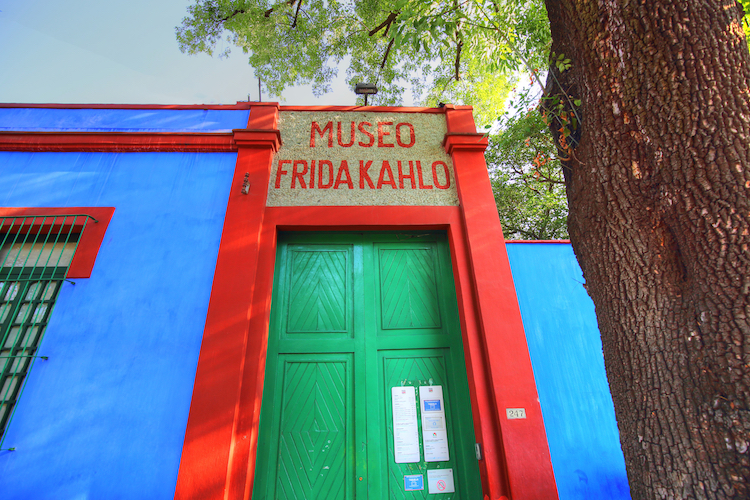
The Frida Kahlo Museum’s entrance (Photo: Elijah Lovkoff via Shutterstock)
Exterior
In addition to the couple’s taste in bright paint, the outside of the house showcases their interest in Mexican folk art.
Four exterior walls frame a courtyard. This space is adorned with a fountain, potted cacti, and a stepped pyramid that doubles as a display case for Rivera’s collection of pre-Hispanic earthenwares.
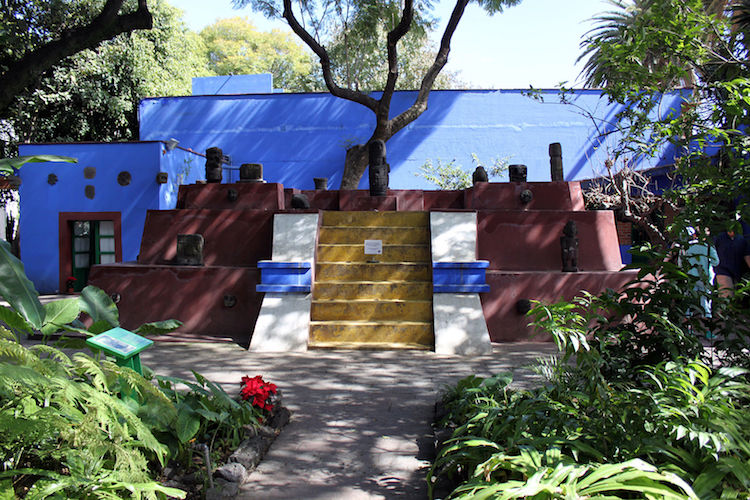
The courtyard (Photo: Anagoria via Wikimedia Commons CC BY 3.0)
This patio is not the only outdoor space that Kahlo and Rivera would have enjoyed; on the other side of the house, there is a lush garden featuring tropical plants and a turquoise reflecting pool.
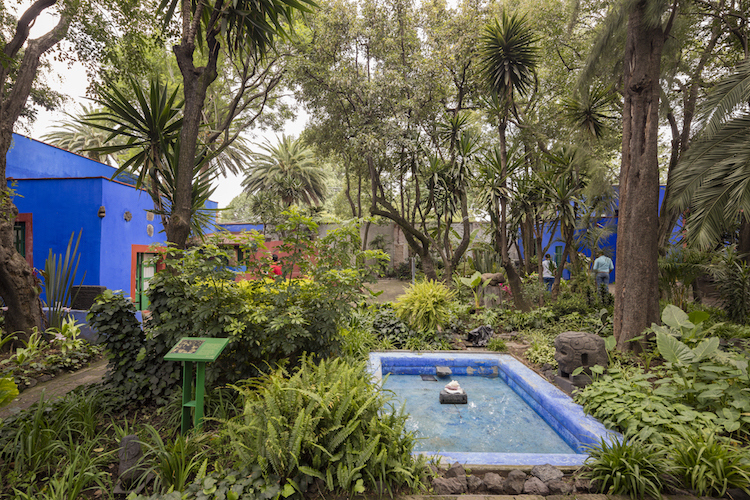
The garden (Photo: BondRocketImages via Shutterstock)
Ground Floor
The ground floor of the house has eight rooms: the living room, the kitchen, the dining room, her husband’s bedroom, and four extra rooms.
The living room exhibits several of the artist’s lesser-known paintings, including Frida y la cesárea and Retrato de familia.
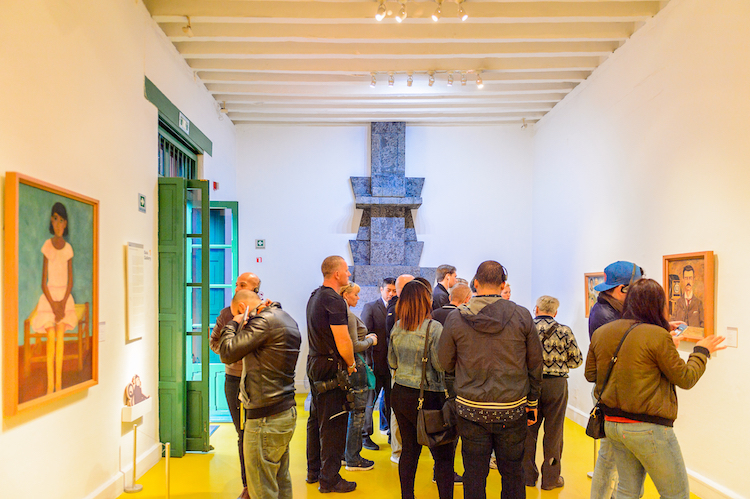
The former living room (Photo: Anton_Ivanov via Shutterstock)
The kitchen is decorated with yellow and blue tiles, traditional pottery, and handcrafted utensils. On the walls, Kahlo arranged tiny pots to spell out the couple’s names.
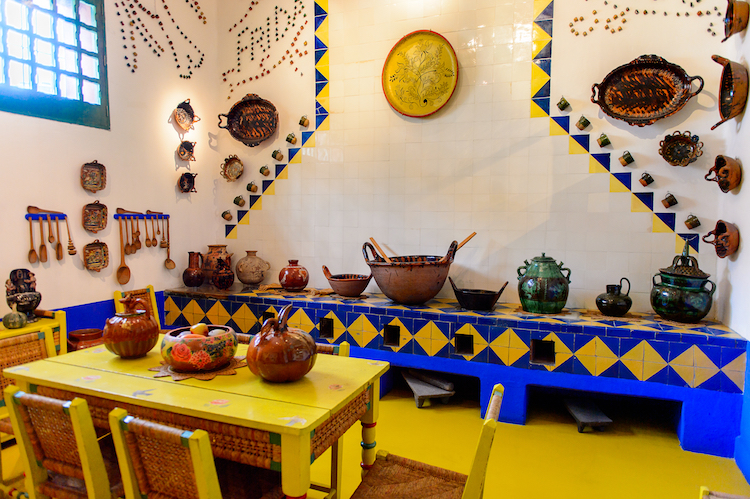
The kitchen (Photo: Anton_Ivanov via Shutterstock)
The dining room shares the kitchen’s color scheme and is decorated with similar artifacts.
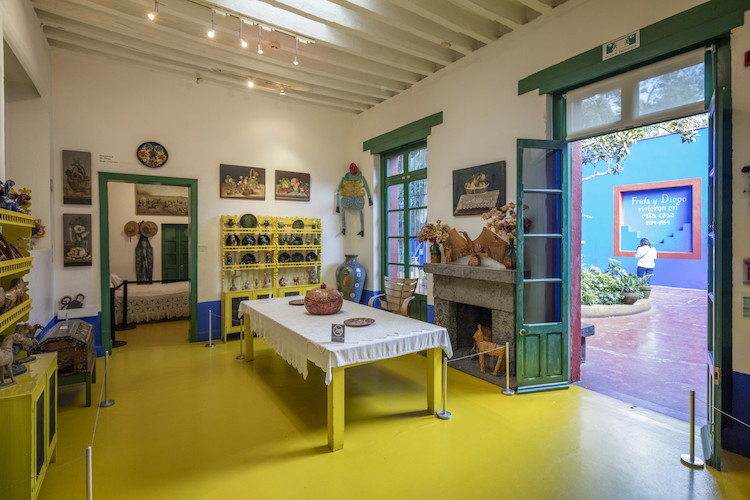
The dining room (Photo: BondRocketImages via Shutterstock)
Diego Rivera’s bedroom is next to the dining room. Here, many of his belongings remain, including the hats and coveralls he would have worn when painting his fresco murals.
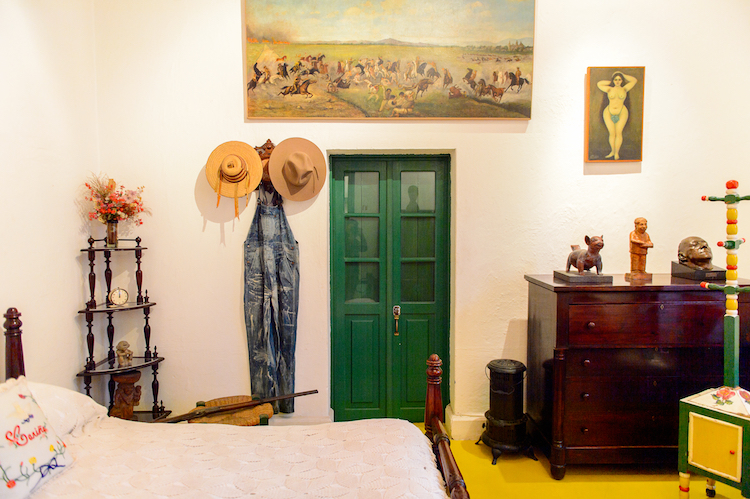
Diego Rivera’s bedroom (Photo: Anton_Ivanov via Shutterstock)
In the extra ground floor rooms, the couple’s eclectic art collection and more of Kahlo’s possessions are on display—from her colorful clothing and jewelry to her medical corsets and prosthetic leg.
Upstairs
On the second floor is Kahlo’s studio, built by Rivera in the 1940s. Today, this sunlit space features her original furniture and art supplies, including paint-covered palettes and pigments in glass bottles. Poignantly, her wheelchair faces her easel.

Frida’s studio (Photo: Anton_Ivanov via Shutterstock)
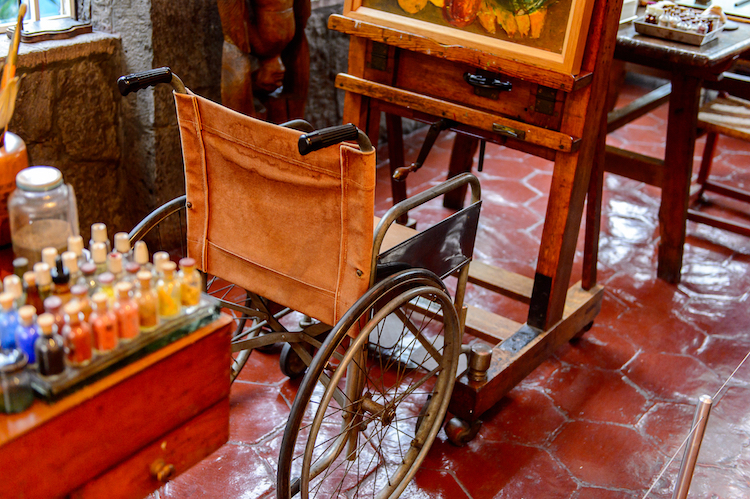
Frida’s studio (Photo: Anton_Ivanov via Shutterstock)
Next to her studio is her bedroom, filled with her canopy bed, wooden furniture, and an array of Mexican crafts, from stone sculptures to papier mâché puppets. As she died in this room in 1954, it fittingly contains her death mask and her ashes, which are in a frog-shaped urn.
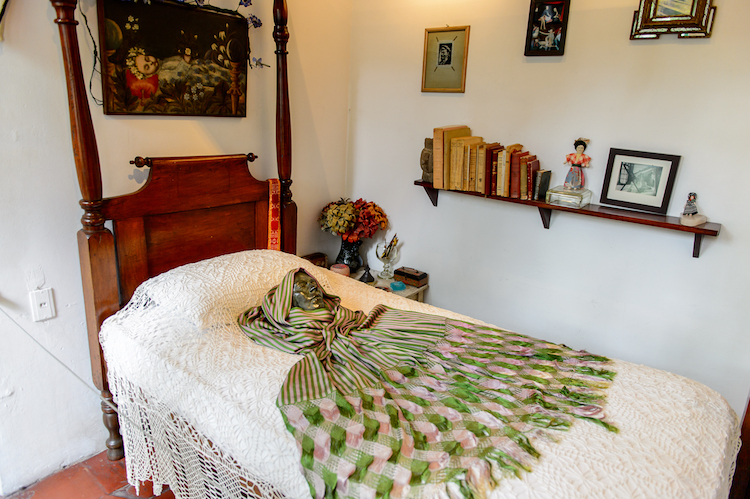
Frida’s bedroom (Photo: Anton_Ivanov via Shutterstock
The Blue House Today
Today, the site is one of the most-visited museums in Mexico City. It continues to attract fans of Kahlo interested in connecting to the artist and learning more about her practice, heritage, and life. “As one explores Frida Kahlo’s work more deeply and enjoys the privilege of getting to know her home,” the museum states, “one begins to discover the intense interrelations between Frida, her work, and her house.”
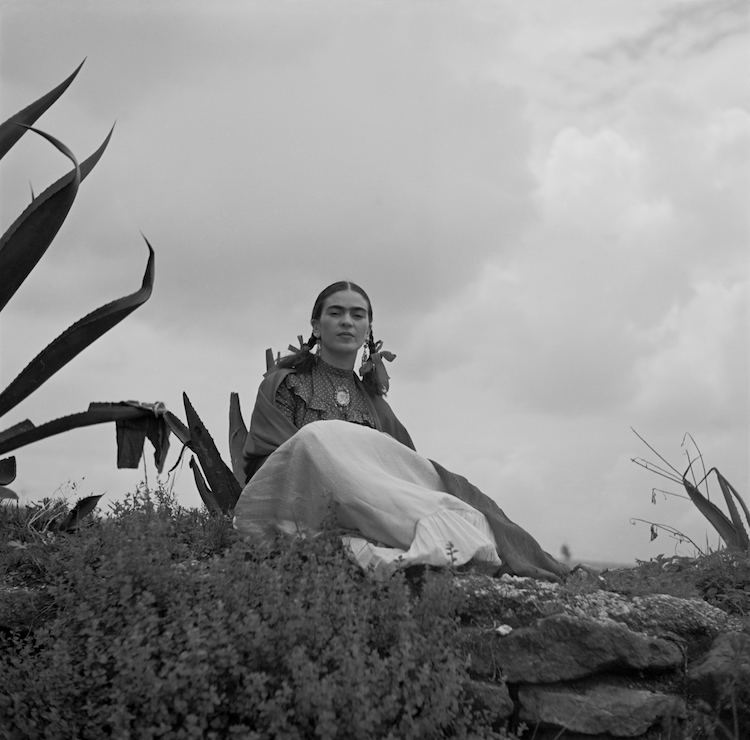
Frida Kahlo in 1937 (Shot by Toni Frissell (Photo: Library of Congress. via Wikimedia Commons Public Domain)
If you’re interested in visiting La Casa Azul, you can plan your visit on the Frida Kahlo Museum’s website. If you can’t make it down to Mexico City, however, you can still take a virtual tour of the historic house.
Related Articles:
8 Interesting Frida Kahlo Facts That May Surprise You
Adorable Frida Kahlo Action Figure Features Iconic Unibrow and Detachable Heart
Explore the World’s Largest Collection of Frida Kahlo Artifacts for Free
